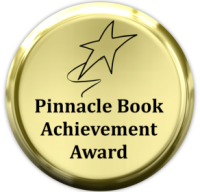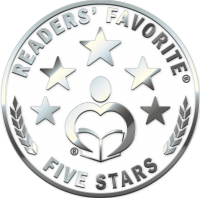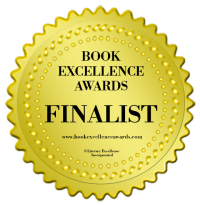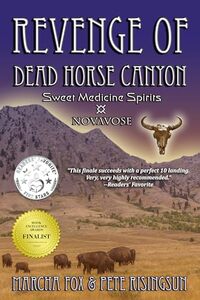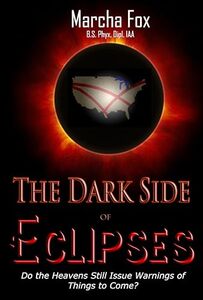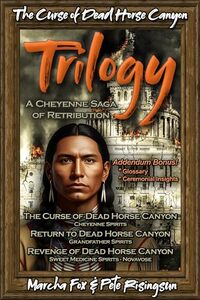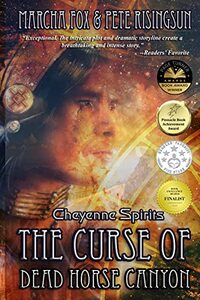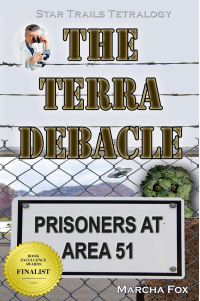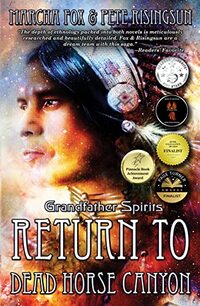Where have you spent most of your childhood? Which is your fondest childhood memory?
I grew up in New York State in a rural area outside a small city on the Hudson River. I remember taking walks in the woods with my mom when I was a young child, then as I got a little older exploring them with my friends. We'd eat wild berries and play all sorts of games.
Since how long have you been living in the Texas Hill Country?
I moved to the Texas Hill Country when I retired from NASA in 2009. I had a lakehouse which was my "hurricane evacuation plan" while I still lived in Houston, but I always planned to retire here. It's about 100 yards from Lake Buchanan on a dirt road where I have some wonderful neighbors. It's a 15 mile drive to the grocery store, but well worth it to live in a peaceful, quiet setting.
What inspired you to start writing since you were old enough to hold a pencil?
I was an only child and my mother read to me a lot. I loved all the stories, plus I learned to read before I started school. My love of books at that early age spurred my desire to write stories as well. I didn't think I'd ever be able to write an entire book. However, a friend of mine was writing a novel and I was essentially a beta reader for her. As I worked with her through the story I realized that I could do it, too, and started my first book.
What challenges did you face while earning a physics degree at the age of 39 with six kids at home?
That was a very difficult time for both me and my family. If I tried to study at home, the kids wouldn't leave me alone. Since I was there, to them I was available. So at a certain point I started studying in the university's library. One thing about math and physics classes is the fact you never know how long it will take to figure something out. It's not just a matter of reading a text book and answering questions. My kids were between 1 and 13 years old when I returned to school. The older kids were handed a lot of responsibility and fortunately I had good neighbors who also helped out with childcare. My then-husband was also in school, but had some flexibility with his job so he was able to usually cover if one of them got sick. Keeping up with laundry was always a challenge.
How would you describe your experience of working for NASA's Johnson Space Center for over 20 years?
Writing a memoir about that experience is definitely on my to-do list. I had wanted to work with the space program for years, so in many respects it was a dream come true to be there. One of my most memorable experiences was when the space shuttle Columbia broke up on entry on February 1, 2003. Much of the debris was over Texas. That spring I spent two weeks in East Texas searching the woods in a grid pattern to help recover what we could. After that I spent months working on the accident investigation.
What motivated you to retire and devote full-time to finishing and publishing my Teen science fiction Star Trails Tetralogy series?
Being burned out on the job coupled with a health crisis motivated me to retire and get away from the stress. My writing had been set aside for years while raising a family and working full-time. Working at NASA was always an integral part of my plan to gather the real-life experience I felt was necessary to create convincing science fiction. With that accomplished, it was time to finally do what I always wanted to do in the first place, which was to write novels.
What inspired you to write a conspiracy thriller trilogy "The Curse of Dead Horse Canyon?"
This story started out as a cozy mystery that I planned to complete in a few months. Since part of the original plot was loosely based on water issues where I live, I decided to set it in Colorado instead of Texas. Once I started researching some of the environmental issues Colorado has courtesy of 19th Century mining industry, the story attained a life of its own and became a complex saga that requires at least three books to tell. I love research and believe that accurate details are essential to good writing. The gist of this story evolved to encompass a top secret government project saturated in corruption that triggers an ancient Cheyenne curse issued during the mining years. Last fall, about the time I thought the first book was done, I hired Pete Risingsun, who's Northern Cheyenne, as a subject matter expert to make sure my depiction of the main character was accurate and not offensive in any way. He became so engrossed and interested in the story before long he became a coauthor. That book will be released July 28 and should be available for preorder by mid-July at the latest.
What is the significance of the title of your book, The Terra Debacle: Prisoners at Area 51?
This is a side-story to the Star Trails Tetralogy, more specifically "A Dark of Endless Days." Three of the characters wind up on Earth (a.k.a. "Terra") where they are separated. What happens for the main character is included in the series, but what happened to the two minor characters, who are taken to Area 51 to be studied, is not. Their story begged to be told, however, with "The Terra Debacle: Prisoners at Area 51" the result. It was fun and challenging to write since the main character is a telepathic walking plant trying to figure out humans as much as they're trying to figure out him. There's quite a bit of humor and a heavy dose of botany from the scientist's viewpoint.
How did you come up with the plot of your book, Beyond the Hidden Sky?
This was very much related to Star Wars. The Brightstar family is immigrating to another planet onboard a massive starship when their teenage daughter, Creena, accidentally gets separated from them in an escape pod. Getting the family back together took three more books loaded with adventure and conspiracies.
Who inspired the character of Dirck Brightstar in "A Dark of Endless Days"?
No one person inspired Dirck. Having raised two boys and four girls I was quite familiar with the interaction between siblings. I wanted him to be very different from Creena so there would be plenty of conflict. Their home world was extremely structured. Dirck was always complaint, but she was always a rebel, which embarrassed him. As the two characters interacted, they both fully came to life through their differences.
When writing a story, what do you like to give the most importance to: the buildup of action, the witty dialogue, the humor, the interesting characters, etc?
My stories are very character-driven. I drop them into a tense situation and then let them figure it out from there. Many times my characters get themselves into a mess where I have no idea how they'll get out of it. So I turn it over to them, and they always figure it out. That, in turn, drives both action and dialogue. I believe all those elements are important. When my first draft is finished and I start the editing process, I use the acronym IDEAS to describe what I watch for: Imagery; Dialogue; Emotion; Action; and Suspense. Attaining the proper balance is the secret to a great story as opposed to a good one. If a story is lacking in any of those areas it won't satisfy the reader as much or be as memorable.
Being a writer from a young age, how has your writing developed over the years?
I was always conscious of being as technically correct as possible with grammar, spelling, word usage, punctuation and so forth. While I still employ that as a guideline, I'm now more inclined to be creative and try things I didn't before. Much relates to getting inside the head of the viewpoint character. I've come to realize there's often no reason to say things like "he saw" or "he thought." These can be expressed in other ways that create a better flow. For example, "The sun dropped toward the horizon" is more effective than saying "He watched the sun drop toward the horizon."
How have negative and positive reviews helped you to write better?
No one like negative reviews but they often bring things to your attention to which you are either blind or been denying. I had a review like that one time that confirmed something I already knew was weak. I re-edited the book accordingly and got in touch with the reviewer, thanked him for his input, and asked if he would be willing to read it. He agreed and upgraded the review. Some reviewers are just trolls or simply don't get it. Some of my astrology books have gotten bad reviews. One, because they wanted the book to be longer and more comprehensive because they liked my style and the other, for a different book, didn't agree with what I said at all, yet the nasty review illustrated that my take on the subject was spot on.
Which is the next book you are writing? Give us an insight into it.
The next book is the sequel to "The Curse of Dead Horse Canyon" with its title "Return to Dead Horse Canyon." It is drafted and as soon as I get the first book launched, I'll get to work editing it and collaborating with my coauthor. The third book in the trilogy is also drafted, but will require extensive work to refine it.
What are your thoughts on AllAuthor and its services?
I really like the AllAuthor concept and the fact that you are so helpful and supportive. It's a great way to get to know other authors and what they're writing. Support for others will evolve organically as we discover those whose work and style fit our personal preferences. You don't put a bunch of obligations, rules, and requirements on the members like some do. While I'm actively writing I am totally immersed in research and the writing process. Okay, I admit it, I'm downright obsessive at that point. Keeping up with my house, yard, and cats takes time enough, to say nothing of my astrology business clients. There aren't enough hours in the day to keep up with everything.






